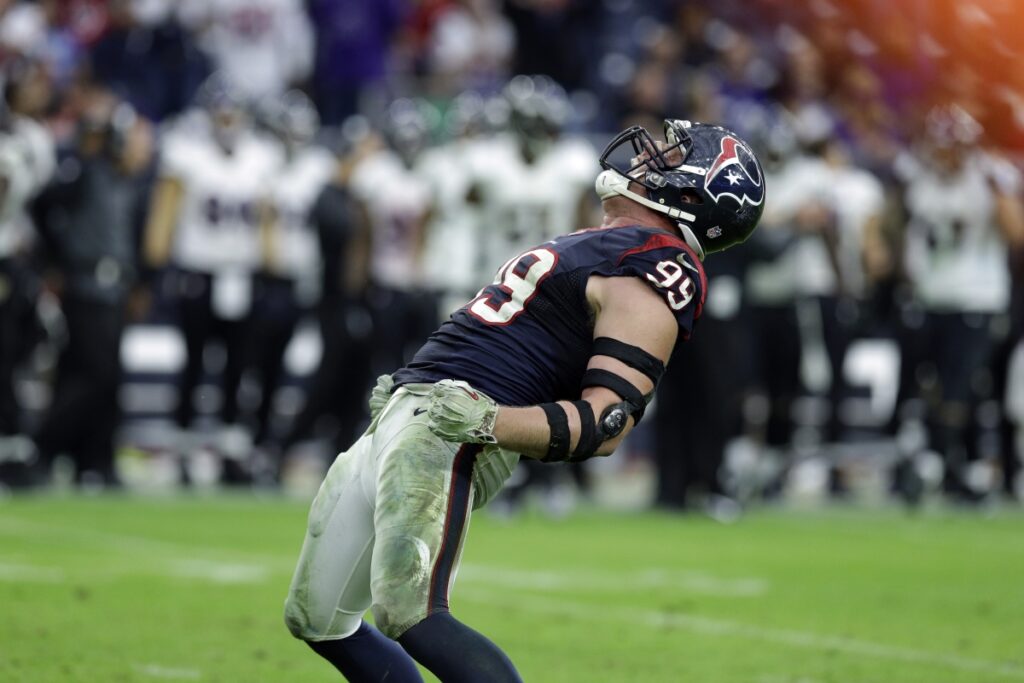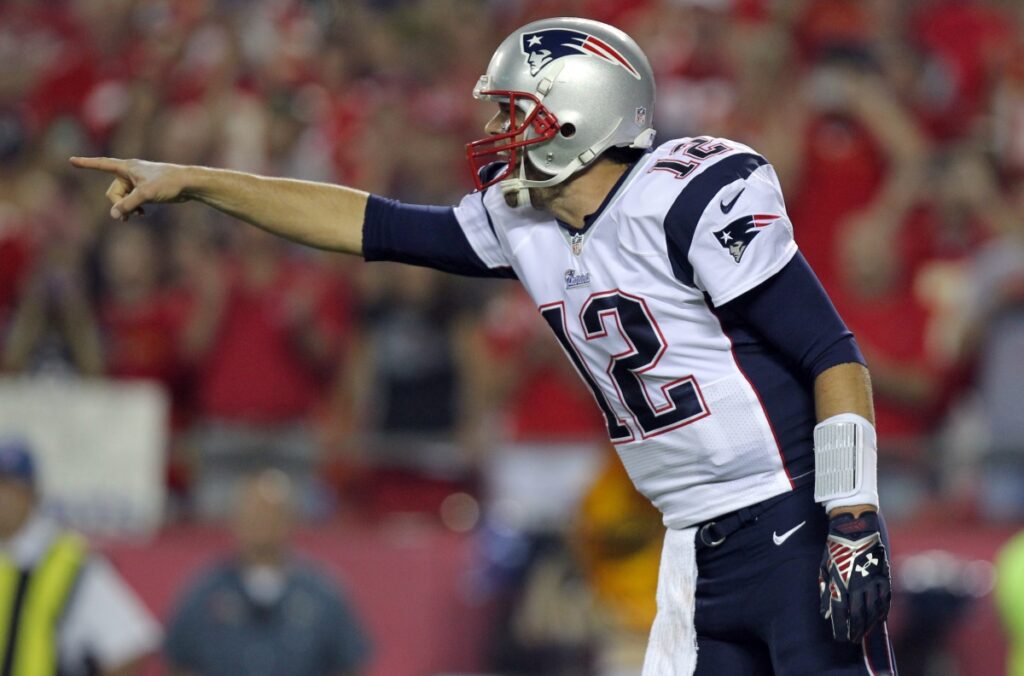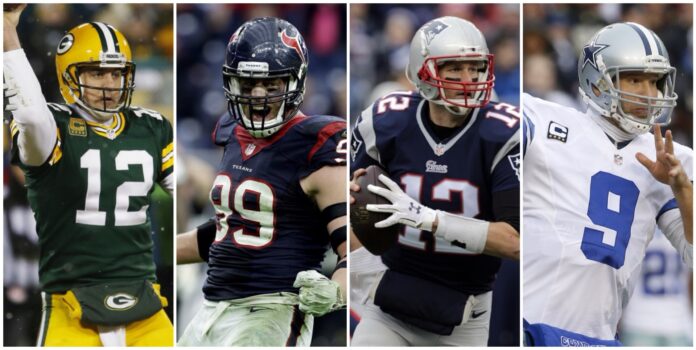Comparing Dissimilar Things…Still Dumb.
Before delving into this subject, a peculiar piece of information should be acknowledged, which may catch the attention of the casual observer: the NFL does not possess an MVP. The league itself hands out no awards.
The designation frequently truncated to “NFL MVP” is, in total, the “AP NFL MVP.”
It is a distinction bestowed by the press, decided upon by journalists and other media members, many of whom may not boast any professional football experience.
Nonetheless, the absence of playing, coaching, or acquiring in-depth knowledge of professional football does not necessarily disqualify one from assessing who is the “most valuable.”
This is partly because the criteria for the award have evolved into a recitation of overarching football statistics that, at times, suggest things that they do not inherently reveal.
For instance, consider two quarterbacks: one throws 25 touchdowns with a completion percentage of 72%, while the other throws 20 touchdowns with a completion percentage of 62%.
Does it immediately signify that the first player performed better?
Not conclusively.
From such limited data, it is impossible to draw a definitive conclusion—a type of information utilized to determine the recipient of the AP NFL MVP award since its inception.
In genuine football evaluation, basic statistics are only a fraction of the essential information required to make a well-founded judgment regarding “who performed better.”
The following aspects should be taken into account:
To enhance his completion percentage, a quarterback may opt to absorb a sack. There is no surer means of maintaining a high completion percentage than not discarding the ball during a negative play.
Yet, this constitutes poor football practice. When individuals later review a statistical summary of the season, they will likely perceive a quarterback proficient at tossing the football but whose offensive line must have performed inadequately.
However, this is not how proper football evaluation is conducted. In adept football assessment, judicious decision-making may hinder one’s statistics in the land of basic numbers. This is an undeniable verity.
This represents just one instance of how rudimentary metrics cannot adequately fulfill the task they are meant to accomplish.
Moreover, it is essential to acknowledge that even possessing an abundance of football experience cannot safeguard against making the same errors when relying on this fundamental information to reach a determination.
Yards, touchdowns, completion percentages, and the like do not convey a sufficiently comprehensive picture.
If they did, Drew Brees, the leader in passing yards in the NFL, would be a strong contender for MVP.
However, anyone who watched all of New Orleans’ games this year would hardly consider Drew Brees a viable MVP candidate.
At this juncture, it appears reasonably evident that Aaron Rodgers will secure the 2014 AP NFL MVP award when assessed using rudimentary statistics inscribed on a piece of paper.
Undeniably, he has enjoyed a highly commendable season. But does Rodgers’ victory equate to the correct answer?
That is a matter of uncertainty. What is certain, however, is that embarking on a quest to determine “who was the most valuable” in football this year is largely beside the point.
The question “Who was the most valuable in football this year?” has always been a somewhat futile inquiry.

A prevailing consensus has surfaced, asserting that the quarterback is the most pivotal figure in football – the embodiment of “most valuable.”
Such a conclusion, while undoubtedly accurate, hardly qualifies as breaking news. It does not equate to a journalistic revelation on the caliber of Woodward and Bernstein unraveling a complex case.
This notion has long held and stands as a self-evident truth. Quarterbacks occupy a unique position where they handle the ball on virtually every snap they partake in, a privilege denied to all others, and the art of scoring in football centers on ball control.
This enduring reality might have become more conspicuous due to shifts in the game’s style, but it certainly does not constitute a newfound epiphany about football.
Quarterbacks indeed represent the “most valuable” players on a football squad; this much is a foregone conclusion.
Nevertheless, being the “most valuable” does not necessarily correlate with being the best athlete on one’s team, nor does it automatically denote an exceptional performance.
It merely signifies that the individual in question executed the quarterback position competently.
When quarterbacks excel, these nuances are often overshadowed. The genuine complexity arises when discussions gravitate toward the hypothetical scenario of “What if they were absent from the team?”
However, basing the outcome of an intelligent award on what might occur if a situation that did not materialize were to unfold is an unreasonable premise.
Evaluating the actual events poses a daunting task in itself, and employing hypotheticals as a central criterion for assessment is imprudent in the absence of substantiating evidence.
Even after conceding that quarterbacks are the “most valuable,” one must recognize that no quarterback takes the field for even half of their team’s plays.
In other words, they are not on the field for at least half of the game. While they may rightfully hold the title of “most valuable,” the question that arises is: what exactly does “most valuable” signify in this specific sport?
At best, it appears to be an utter conjecture. At worst, it comes across as a futile pursuit.
While society comprehends the folly of comparing dissimilar entities, for some inexplicable reason, football appears immune to the wisdom of refraining from juxtaposing quarterbacks with linebackers, offensive linemen with cornerbacks, or any other incongruent pairings.
It represents a perplexing phenomenon that eludes clear thinking.
This is precisely where football experience emerges as paramount.
In the intricate, multifaceted realm of football, bearing the mantle of “most valuable” is akin to being deemed the “hairiest hair.”
It is an assertion that defies substantiation and appears nonsensical in a sport where each player relies heavily on others executing profoundly distinct roles.
If the very nature of the game itself dictates that a specific position carries more excellent value, then pitting dissimilar players against each other ceases to be a genuine contest; it metamorphoses into an ill-conceived query, a frivolous pursuit, or even a mere parlor trick.
It serves as a stark reminder that football experience may not lend assistance in selecting a victor from a roster of rehearsed statistics. Still, it does aid in eschewing senseless, predetermined queries.
There’s plenty of talk amongst players about Pro Bowls and questions that compare like things. But not-shockingly, no debates comparing unlike things.
The AP boasts an Offensive Player of the Year award and a Defensive Player of the Year award.
If the urge to merge these distinctions were indeed overpowering (though one should never cross the streams), it would have been prudent to forsake the “MVP” terminology and instead adopt the label of “Most Outstanding.”
This would ensure that comparisons are drawn among similar categories.
Houston Texans defensive lineman JJ Watt, during a season in which he far surpassed his contemporaries performing the same role, demonstrated an extraordinary performance.
If one is currently seeking his statistics, they may have misconstrued the central theme of this article.
Whether Watt’s achievements this year qualify as “most valuable” remains an open question, and this is of no great consequence, for it stands as an impossible task to establish.
What Watt undeniably underscores is the inherent futility of the “most valuable” inquiry in the realm of football.
If the question posed for an award fails to encompass the remarkable year that JJ Watt has just delivered, then the inquiry itself is fundamentally flawed. It is an assertion that one has asked the wrong question.

Before commencing this column, the writer was admittedly unaware of how many MVP accolades his friend and former teammate, Tom Brady, had garnered.
Tom, widely regarded as one of the preeminent quarterbacks over the past 15 years, raised questions: Did Tom boast three MVPs? Five MVPs? One? None?
Upon further investigation, it was revealed that he had secured two MVP awards. A somewhat perplexing realization, for the question arises, “How did this detail elude the writer?”
The answer becomes apparent—within the confines of an NFL locker room, the topic of “MVP” never surfaces. Discussions concerning the concept of “most valuable” or related matters are conspicuously absent from the discourse within football circles.
Such considerations, it seems, fall outside the purview of football discourse, lacking a substantial foundation in the world of the sport.
It appears to be the type of award that would naturally originate from a perspective external to football, responding to a query that inherently stems from a non-football vantage point.
It is imperative to clarify that this perspective does not convey any disdain for awards in a team sport.
Quite the contrary, players often discuss Pro Bowl selections and awards that involve comparisons among similar elements.
However, they seldom, if ever, engage in debates that juxtapose dissimilar elements, for such discussions appear devoid of football logic.
Thus, as the year nears its conclusion and the chatter regarding “Who Should Be NFL MVP?” intensifies, both around the office water cooler and in the sensationalized realms of the internet.
The primary and perhaps sole response to the MVP question should be, “Who Cares?” When one already acknowledges that quarterbacks hold a more excellent value, why engage in a futile discussion comparing entities of disparate natures?
In the context of the preeminent NFL player award, the crux of the issue has always rested in the formulation of the question. The AP NFL MVP award, in essence, never indeed possessed a substantial foundation.
And when seasons like JJ Watt’s come to fruition, it becomes glaringly evident that an injection of common sense is long overdue in a sport that has lost its bearing during the tenure of the current commissioner.
Perhaps the title “Most Outstanding” could suffice. However, “Most Valuable”? That appellation appears more fitting in the context of a basketball contest, where the dynamics differ significantly.

